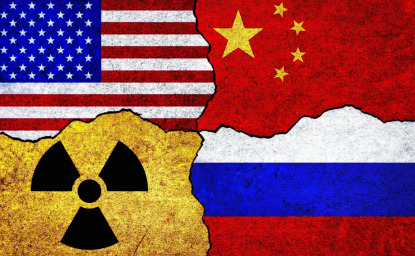Jacques Delors, the former French Finance Minister and President of the European Commission, who died in December at age 98, was the driving force behind two of the European Union’s (EU) most remarkable accomplishments–the single market for goods, services and people, and the European Monetary Union that led to the introduction in 2000 of the euro, the EU’s common currency.
Today the euro and the single market are deeply embedded, but 30 years ago travelers had to exchange money at every European border. Shops in many European countries had to price their goods in multiple currencies. Technical standards were not mutually recognized, so goods were held up at borders. Investing in another EU member state was often cumbersome.
In 1986, Mr. Delors began to change all that when he spearheaded passage of the Single European Act through the 12 member nations. By January 1, 1993 the SEA resulted in the scrapping of non-tariff barriers and border checks and the mutual acceptance of technical standards. Europe’s future, Mr. Delors believed, depended on the efficiencies that would spring from a broader and deeper union.
The ability to easily sell goods and services and to invest freely in all member states transformed the European Community (EC) and later the EU into an economic powerhouse. The euro made doing business in Europe cheaper, more predictable, and far less risky. A common currency and more freedom to travel among countries also generated a sense among citizens that they were European as well as French, German, or Belgian. This was something new.
But in supercharging the push toward a more dynamic and ever-closer union, Mr. Delors set in motion another force–a fierce blowback from nationalists who feared their sovereignty was being impinged by a technocratic cabal in faraway Brussels. Greater competition among European companies unsettled many workers, who viewed this as a threat to their long-established and deeply cherished workplace traditions. The tensions unleashed by these more dynamic economic conditions would eventually lead first to the Euro-crisis in 2009, when Greece nearly tumbled out of the euro and the euro itself almost collapsed. Next came Brexit.
There is little doubt that the creation of the single market provided a powerful jolt for the European economy. The European Central Bank estimates that real per capita growth has climbed by 12%-22% since the single market’s creation, with smaller countries enjoying greater gains than the larger countries. The introduction of the euro brought lower inflation and lower interest rates.
But as with all dramatic economic policy changes, there were losers as well as winners. Less-competitive companies cosseted in the previously protected environments of some member states went out of business. Something similar took place in the United States after the implementation of major trade agreements such as NAFTA and the Uruguay Round, which created the World Trade Organization. Most people gained through greater efficiency and more consumer choice. But there were those who did not fare as well. The benefits were dispersed across the entire economy while the losses were concentrated in specific industries or companies. Those who gained may not have appreciated how and why this was the case, but those who lost knew for certain.
Mr. Delors wrestled for many decades with the question of how to help those who drew the short straw from economic transformation. He favored open markets and budgetary restraint. But he also believed markets–and international trade–needed to be regulated and that open economic policies were not sustainable without social measures to offset the jarring impact of enhanced international competition.
In 1988, he proposed a “Social Dimension” to the internal market plan, which included the right to bargain collectively and protections for temporary workers. Workers were to be represented in company decision making and every worker was entitled to lifelong education. There was fierce opposition, notably from Margaret Thatcher’s Britain, and the plan never got off the ground.
As the move toward a monetary union gathered pace, these anxieties became more deep seated. Britain, Denmark, and Sweden opted out of the euro and London retained its constraints on free travel. But even with these exceptions, many in Britain believed the die had been cast and so began the inexorable descent into Brexit and the country leaving the EU in 2020. Anti-Europe hostility arose in Poland and continues today in Hungary.
If he underestimated the full magnitude of the nationalists’ opposition, Mr. Delors was under no illusions about the fragility of the monetary union project. Apart from British resistance to a single currency, there was another serious impediment to adoption of the Euro. France wanted the power of Germany’s currency (the Deutsche mark) to be curbed through a common currency and a common central bank. Yet Germany’s historical aversion to inflation made it wary of the budgetary policies of its freer-spending neighbors and wanted European-wide budgetary discipline.
The result was a flimsy compromise wherein governments pledged to keep their budget deficits and overall debt burdens within agreed limits. Mr. Delors knew the lopsided economic structure of the Maastricht Treaty posed real danger down the road, but he considered the prize of greater Europe unity to be worth the risk. Many countries never achieved those limits and as membership in the Euro increased, the strain on the currency bubbled over. Only adroit leadership from then European Central Bank President Mario Draghi in 2010 prevented the demise of the euro.
Mr. Delors recognized early in his career that underlying social tensions could doom grand economic and political projects. But for much of his career, his appreciation of the need for sound regulation and a social compact was not globally embraced. He foresaw the seismic political and social tremors that economic integration would spark, and he suggested policies that would make such integration more widely acceptable.
Were his policy prescriptions the right way to address the burgeoning opposition to opening trade and investment? We will never know because they were never enacted. Some EU countries–notably Denmark–implemented programs to cushion the impact of globalization. Others have been slow off the mark. The US has for years used the Trade Adjustment Assistance program to retrain workers who have been displaced by import competition. But the TAA program has few fans and is widely perceived to be ineffective.
The inability of Western governments to address domestic grievances on trade has contributed to a sharp rise in nationalism and the disintegration of support for trade and closer economic integration in much of Europe and the US. The World Trade Organization’s negotiating agenda has been gutted. Brussels’ efforts to strike trade deals with the US, Mercosur and India have ground to a halt. The US has no plans to negotiate trade agreements for the foreseeable future. Managed trade is the order of the day.
Had a social dimension been incorporated into the EU’s single market program and subsequently, in global WTO negotiations, might public support for trade be more ardent? We don’t know the answer, but what seems clear is that Mr. Delors was asking the right questions.
Author

Director of the Information and External Relations Division and Chief Spokesman at the World Trade Organization (retired)

Wahba Institute for Strategic Competition
The Wahba Institute for Strategic Competition works to shape conversations and inspire meaningful action to strengthen technology, trade, infrastructure, and energy as part of American economic and global leadership that benefits the nation and the world. Read more


Global Europe Program
The Global Europe Program is focused on Europe’s capabilities, and how it engages on critical global issues. We investigate European approaches to critical global issues. We examine Europe’s relations with Russia and Eurasia, China and the Indo-Pacific, the Middle East and Africa. Our initiatives include “Ukraine in Europe”—an examination of what it will take to make Ukraine’s European future a reality. But we also examine the role of NATO, the European Union and the OSCE, Europe’s energy security, transatlantic trade disputes, and challenges to democracy. The Global Europe Program’s staff, scholars-in-residence, and Global Fellows participate in seminars, policy study groups, and international conferences to provide analytical recommendations to policy makers and the media. Read more


History and Public Policy Program
A leader in making key foreign policy records accessible and fostering informed scholarship, analysis, and discussion on international affairs, past and present. Read more

Explore More
Browse Insights & Analysis
US Inaction Is Ceding the Global Nuclear Market to China and Russia

Promoting Convergence in US-Brazil Relations


